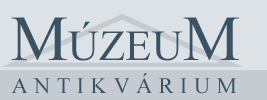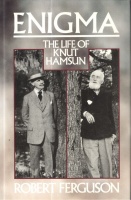categories
- Traffic and Vehicles Catalogue
- socreal.catalog
- Advertisement Catalogue
- Photo Catalogue
- Chinese and Japanese Catalogue
- New Holy Card Catalogue II.
- 12 interesting old books
 Books
Books
 Bibliophil
Bibliophil
 Antiques
Antiques
 Engraving
Engraving
 Maps
Maps
 Photos
Photos
 Antique Papers, Small Prints
Antique Papers, Small Prints
 Posters
Posters
- Circus
- Modern Graphics
- Socialist Realism
- NER Propaganda
- Others
cart
Cart is empty
You've not logged in
Ferguson, Robert : Enigma - Life of Knut Hamsun
- description
- additional information
The beginning of Robert Ferguson's introduction is arresting. 'If they've heard of him at all, people tend to know two things about Knut Hamsun: that he wrote Hunger, and that he met Hitler. Those who know a little more know that in Hunger, Mysteries and Pan, he produced novels that have had a decisive effect on European and American literature of the twentieth century. Ernest Hemingway tried to write like him; so did Henry Miller, who called him 'the Dickens of my generation'; 'never has the Nobel Prize been awarded to one worthier of it.' Thomas Mann wrote in 1929. Hermann Hesse called him 'my favourite author'. Russian writers like Andre Bely and Boris Pasternak read him keenly in their youth, and Andre Gide thought him arguable superior to Dostoevsky. They all read him - Kafka, Brecht, Gorky, Wells, Musil. Rebecca West described him as the possessor of 'qualities that belong to the very great - the completest omniscience about human nature'. And Isaac Bashevis Singer stated that Hamsun was quite simply 'the father of the modern school of literature in his every aspect - his subjectiveness, his fragmentariness, his use of flashbacks, his lyricism'. Singer, in his foreword to Hunger, goes on to say that 'The whole modern school of fiction in the twentieth century stems from Hamsun.' Yet in discussions of the history of modern literature, Hamsun's name is rarely mentioned. His reputation, which probably reached its height around 1929 with the world celebrations of his seventieth birthday, was in ruins by the end of the Second World War. Alone among the major European writers, he had supported Hitler. Brazenly alone, he had hailed he rise and bemoaned the fall of the epitome of spiritual tyranny in recent history.'
What a subject, and in this, the first biography, Robert Ferguson brilliantly gets the measure of this awkward, paradoxical writer, or, as he calls him 'a multiple paradox, a living riddle; a human question-mark'.
| condition: |      |
| category: | Books > Foreign Language Books > Books in English > Literature in English > |
| publisher: | Hutchinson, 1987 |
| item number / ISBN: | 9780091671303 |
| binding: | hardcover (in original dust jacket) |
| pages: | 453 |
| language: | English |









 Telefon:
Telefon: E-mail:
E-mail:







